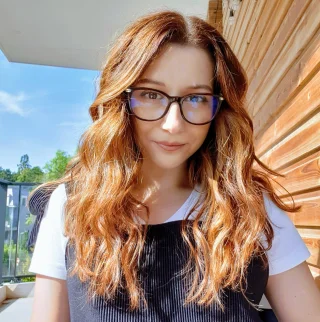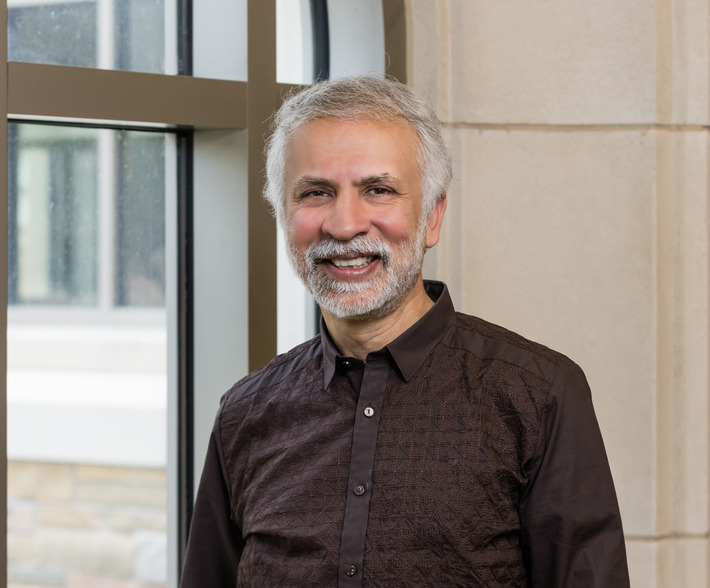
ALA 2025
19 & 20 May 2025, Detroit, Michigan, USA
News
- 21 May 2025: Best paper is announced in the awards.
- 5 May 2025: Camera-ready copies of all papers are viewable in the program.
- 2 May 2025: Poster size should be maximum A0. For details see: Poster Sessions
- 25 Apr 2025: The program for the workshop is now available.
- 10 Apr 2025: The deadline for the camera-ready version of accepted papers has been extended to 1 May 2025.
- 28 Mar 2025: We are excited to announce Sandip Sen as a keynote speaker for ALA 2025.
- 12 Mar 2025: We are excited to announce Eugene Vinitsky as a keynote speaker for ALA 2025.
- 26 Feb 2025: We are excited to announce Roxana Rădulescu as a keynote speaker for ALA 2025.
- 24 Feb 2025: ALA 2025 submission deadline has been further to 1 March 2025 23:59 AOE.
- 30 Jan 2025: ALA 2025 submission deadline has been further to 25 Feb 2025 23:59 AOE.
- 24 Jan 2025: Added the OpenReview link to the submission details!
- 6 Dec 2024: ALA 2025 Website goes live!
ALA 2025 - Workshop at AAMAS 2025
Adaptive and Learning Agents (ALA) encompasses diverse fields such as Computer Science, Software Engineering, Biology, as well as Cognitive and Social Sciences. The ALA workshop will focus on agents and multiagent systems which employ learning or adaptation.
The goal of this workshop is to increase awareness of and interest in adaptive agent research, encourage collaboration and give a representative overview of current research in the area of adaptive and learning agents and multi-agent systems. It aims at bringing together not only scientists from different areas of computer science (e.g. agent architectures, reinforcement learning, evolutionary algorithms) but also from different fields studying similar concepts (e.g. game theory, bio-inspired control, mechanism design).
The workshop will serve as an inclusive forum for the discussion of ongoing or completed work covering both theoretical and practical aspects of adaptive and learning agents and multi-agent systems.
This workshop will focus on all aspects of adaptive and learning agents and multi-agent systems with a particular amphasis on how to modify established learning techniques and/or create new learning paradigms to address the many challenges presented by complex real-world problems. The topics of interest include but are not limited to:
- Novel combinations of reinforcement and supervised learning approaches
- Integrated learning approaches using reasoning modules like negotiation, trust, coordination, etc..
- Supervised and semi-supervised multi-agent learning
- Reinforcement learning (single- and multi-agent)
- Novel deep learning approaches for adaptive single- and multi-agent systems
- Multi-objective optimisation in single- and multi-agent systems
- Planning (single- and multi-agent)
- Reasoning (single- and multi-agent)
- Distributed learning
- Adaptation and learning in dynamic environments
- Evolution of agents in complex environments
- Co-evolution of agents in a multi-agent setting
- Cooperative exploration and learning to cooperate and collaborate
- Learning trust and reputation
- Communication restrictions and their impact on multi-agent coordination
- Design of reward structure and fitness measures for coordination
- Scaling learning techniques to large systems of learning and adaptive agents
- Emergent behaviour in adaptive multi-agent systems
- Game theoretical analysis of adaptive multi-agent systems
- Neuro-control in multi-agent systems
- Bio-inspired multi-agent systems
- Human-in-the-loop learning systems
- Applications of adaptive and learning agents and multi-agent systems to real world complex systems
Important Dates
Submission Details
Papers can be submitted through OpenReview.
We invite submission of original work, up to 8 pages in length (excluding references) in the ACM proceedings format (i.e. following the AAMAS formatting instructions). This includes work that has been accepted as a poster/extended abstract at AAMAS 2025. Keeping with previous ALA guidelines, papers are limited to 8 pages plus references. Additionally, we welcome submission of preliminary results, i.e. work-in-progress, as well as visionary outlook papers that lay out directions for future research in a specific area, both up to 6 pages in length, although shorter papers are very much welcome, and will not be judged differently. Finally, we also accept recently published journal papers in the form of a 2 page abstract.
Furthermore, for submissions that were rejected or accepted as extended abstracts at AAMAS, authors need to also append the received reviews and a pdfdiff.
All submissions will be peer-reviewed (double-blind). Accepted work will be allocated time for poster and possibly oral presentation during the workshop. In line with AAMAS, the workshop will be fully offline.
When preparing your submission for ALA 2025, please be sure to remove the AAMAS copyright block, citation information and running headers. Please replace the AAMAS copyright block in the main.tex file from the AAMAS template with the following:
\setcopyright{none}
\acmConference[ALA '25]{Proc.\@ of the Adaptive and Learning Agents Workshop (ALA 2025)}{May 19 -- 20, 2025}{Detroit, Michigan, USA, ala-workshop.github.io}{Avalos, Aydeniz, M\"uller, Mohammedalamen (eds.)}
\copyrightyear{2025}
\acmYear{2025}
\acmDOI{}
\acmPrice{}
\acmISBN{}
\settopmatter{printacmref=false}
For the submission of the camera-ready paper make sure to submit the deanonymized version with the replaced copyright block above.
Program
All times are presented in local Detroit time.
Monday May 19
| 08:30-9:00 | Welcome & Opening Remarks |
| 09:00-10:00 | Session I - Chair: A. Alp Aydeniz |
| 09:00-10:00 | Invited Talk: Eugene Vinitsky |
| 10:00-10:45 | Coffee Break |
| 10:45-12:30 | Session II - Chair: Raphael Avalos |
| 10:45-11:00 | Long Talk: Umer Siddique, Peilang Li, Yongcan Cao Learning Fair Pareto-Optimal Policies in Multi-Objective Reinforcement Learning |
| 11:00-11:15 | Long Talk: Patrick Benjamin, Alessandro Abate Networked Communication for Mean-Field Games with Function Approximation and Empirical Mean-Field Estimation |
| 11:15-11:30 | Long Talk: Rory Lipkis, Adrian Agogino Failure Analysis of Autonomous Systems with RL-Guided MCMC Sampling |
| 11:30-11:45 | Long Talk: Bhavini Jeloka, Yue Guan, Panagiotis Tsiotras Learning Large-Scale Competitive Team Behaviors with Mean-Field Interactions |
| 11:45-12:30 | Short Talks, 5 minutes each in order:
|
| 12:30-14:00 | Lunch Break |
| 14:00-16:00 | Session III & Poster Session - Chair: Raphael Avalos |
| 14:00-14:15 | Long Talk: Jingjing Feng, Lucheng Wang, Alona Tenytska, Bei Peng Sample-Efficient Preference-Based Reinforcement Learning Using Diffusion Models |
| 14:15-14:30 | Long Talk: Alicia P. Wolfe, Oliver Diamond, Brigitte Goeler-Slough, Remi Feuerman, Magdalena Kisielinska, Victoria Manfredi Multicopy Reinforcement Learning Agents |
| 14:30-15:45 | Poster Session A |
| 15:45-16:30 | Coffee Break |
| 16:30-17:30 | Session IV - Chair: Henrik Müller |
| 16:30-17:30 | Invited Talk: Sandip Sen |
| ~18:00 | Social Gathering Detroiter Bar (Google Maps) |
Tuesday May 20
| 09:00-10:00 | Session V - Chair: Raphael Avalos |
| 09:00-10:00 | Invited Talk: Roxana Rădulescu |
| 10:00-10:45 | Coffee Break |
| 10:45-12:30 | Session VI - Chair: Gaurav Dixit |
| 10:45-11:00 | Long Talk: Tao Li, Juan Guevara, Xinhong Xie, Quanyan Zhu Self-Confirming Transformer for Belief-Conditioned Adaptation in Offline Multi-Agent Reinforcement Learning |
| 11:00-11:15 | Long Talk: Willem Röpke, Raphaël Avalos, Roxana Rădulescu, Ann Nowe, Diederik M Roijers, Florent Delgrange Integrating RL and Planning through Optimal Transport World Models |
| 11:15-11:30 | Long Talk: Yen Ru Lai, Fu-Chieh Chang, Pei-Yuan Wu Leveraging Unlabeled Data Sharing through Kernel Function Approximation in Offline Reinforcement Learning |
| 11:30-12:30 | Short Talks, 5 minutes each in order:
|
| 12:30-14:00 | Lunch Break |
| 14:00-15:45 | Session VII & Poster Session - Chair: Raphael Avalos |
| 14:00-14:15 | Long Talk: Arnau Mayoral-Macau, Manel Rodriguez-Soto, Enrico Marchesini, Maite López-Sánchez, Marti Sanchez-Fibla, Alessandro Farinelli, Juan Antonio Rodriguez Aguilar Designing ethical environments using multi-agent reinforcement learning |
| 14:15-14:30 | Long Talk: Daniel Melcer, Stavros Tripakis, Christopher Amato Learned Shields for Multi-Agent Reinforcement Learning |
| 14:30-15:45 | Poster Session B |
| 15:45-16:30 | Coffee Break |
| 16:30-17:30 | Panel Session |
| 17:30 | Awards & Closing Remarks |
Poster Sessions
Maximum poster dimensions: A0, which is approximately 46.8 inches tall by 33.1 inches wide (1189mm in height by 841mm in width). Portrait orientation is recommended.
Poster Session A - Monday May 19 14:30-15:45
All papers presented on day 1.
Poster Session B - Tuesday May 20 14:30-15:45
All papers presented on day 2.
Accepted Papers
| Paper # | Authors | Title |
|---|---|---|
| 1 | Arnau Mayoral-Macau, Manel Rodriguez-Soto, Enrico Marchesini, Maite López-Sánchez, Marti Sanchez-Fibla, Alessandro Farinelli, Juan Antonio Rodriguez Aguilar | Designing ethical environments using multi-agent reinforcement learning |
| 2 | Jingjing Feng, Lucheng Wang, Alona Tenytska, Bei Peng | Sample-Efficient Preference-Based Reinforcement Learning Using Diffusion Models |
| 4 | Patrick Benjamin, Alessandro Abate | Networked Communication for Mean-Field Games with Function Approximation and Empirical Mean-Field Estimation |
| 5 | Matteo Ceriscioli, Karthika Mohan | Causal Discovery via Adaptive Agents in Multi-Agent and Sequential Decision Tasks |
| 6 | Yoann Poupart, Aurélie Beynier, Nicolas Maudet | Perspectives for Direct Interpretability in Multi-Agent Deep Reinforcement Learning |
| 7 | Gabriel Romio, Mateus Begnini Melchiades, Gabriel de Oliveira Ramos | Improving Option Learning with Hindsight Experience Replay |
| 10 | Pedro Sequeira, Vidyasagar Sadhu, Melinda Gervasio | ToMCAT: Theory-of-Mind for Cooperative Agents in Teams via Multiagent Diffusion Policies |
| 11 | Yen Ru Lai, Fu-Chieh Chang, Pei-Yuan Wu | Leveraging Unlabeled Data Sharing through Kernel Function Approximation in Offline Reinforcement Learning |
| 12 | Thibault Roux, Filipo Studzinski Perotto, Gauthier Picard | Towards Scalable Collision Avoidance in Dense Airspaces with Deep Multi-Agent Reinforcement Learning |
| 13 | Dimitris Michailidis, Sennay Ghebreab, Fernando P. Santos | Understanding Fairness in Congestion Games with Learning Agents |
| 14 | Lukas Schäfer, Logan Jones, Anssi Kanervisto, Yuhan Cao, Tabish Rashid, Raluca Georgescu, David Bignell, Siddhartha Sen, Andrea Treviño Gavito, Sam Devlin | Visual Encoders for Imitation Learning in Modern Video Games |
| 15 | Tao Li, Juan Guevara, Xinhong Xie, Quanyan Zhu | Self-Confirming Transformer for Belief-Conditioned Adaptation in Offline Multi-Agent Reinforcement Learning |
| 16 | Bhavini Jeloka, Yue Guan, Panagiotis Tsiotras | Learning Large-Scale Competitive Team Behaviors with Mean-Field Interactions |
| 17 | Narjes Nourzad, Jared Coleman, Zhongyuan Zhao, Bhaskar Krishnamachari, Gunjan Verma, Santiago Segarra | Actor-Twin Framework for Task Graph Scheduling |
| 20 | Florian Grötschla, Joël Mathys, Loïc Holbein, Roger Wattenhofer | Reinforcement Learning for Locally Checkable Labeling Problems |
| 22 | Bernhard Hilpert, Muhan Hou, Kim Baraka, Joost Broekens | Can You See How I learn? Human Observers' Inferences about Reinforcement Learning Agents' Learning Processes |
| 23 | Marc Saideh, Jamont, Laurent Vercouter | Adaptive Authentication Factor Selection in the Internet of Things: A Trust-Based Multi-Objective Optimization Approach |
| 24 | Zeki Doruk Erden, Boi Faltings | Agential AI for Integrated Continual Learning, Deliberative Behavior, and Comprehensible Models |
| 25 | Zeki Doruk Erden, Donia Gasmi, Boi Faltings | Continual Reinforcement Learning via Autoencoder-Driven Task and New Environment Recognition |
| 26 | Mateus Begnini Melchiades, Gabriel de Oliveira Ramos, Bruno Castro da Silva | Dynamic Option Creation in Option-Critic Reinforcement Learning |
| 28 | Augusto Antônio Fontanive Leal, Mateus Begnini Melchiades, Gabriel de Oliveira Ramos | A Flexible Approach to Deliberation Cost in the Option-Critic Architecture |
| 29 | Andries Rosseau, Paolo Turrini, Marjon Blondeel, Ann Nowe | Scaling Marginal Cost Tolling to Address Heterogeneity under Imperfect Information in Routing Games |
| 31 | Everardo Gonzalez, Siddarth Iyer, Kagan Tumer | Influence Based Reward Shaping Without a Heuristic |
| 33 | Fares Chouaki, Aurélie Beynier, Nicolas Maudet, Paolo Viappiani | Fairness in Cooperative Multiagent Multiobjective Reinforcement Learning using the Expected Scalarized Return |
| 39 | Willem Röpke, Raphaël Avalos, Roxana Rădulescu, Ann Nowe, Diederik M Roijers, Florent Delgrange | Integrating RL and Planning through Optimal Transport World Models |
| 40 | Alicia P. Wolfe, Oliver Diamond, Brigitte Goeler-Slough, Remi Feuerman, Magdalena Kisielinska, Victoria Manfredi | Multicopy Reinforcement Learning Agents |
| 42 | Daniel Melcer, Stavros Tripakis, Christopher Amato | Learned Shields for Multi-Agent Reinforcement Learning |
| 43 | Umer Siddique, Peilang Li, Yongcan Cao | Learning Fair Pareto-Optimal Policies in Multi-Objective Reinforcement Learning |
| 44 | Kevin A. Wang, Jerry Xia, Stephen Chung, Amy Greenwald | Dynamic Thinker: Optimizing Decision-Time Planning with Costly Compute |
| 45 | Rory Lipkis, Adrian Agogino | Failure Analysis of Autonomous Systems with RL-Guided MCMC Sampling |
Invited Talks
Roxana Rădulescu

Affiliation: Utrecht University
Website: https://www.uu.nl/staff/RTRadulescu
Title: Dissecting multi-objective learning agents
Abstract: Most real-world problems involve multiple, potentially conflicting objectives; for example, safety versus fuel efficiency versus speed in autonomous driving, or treatment effectiveness versus side effects in medical treatment planning. Tackling such problems using reinforcement learning (RL) methods either requires an a-priori scalarisation of the reward signal, or involves applying multi-objective RL. In this talk I compare these approaches, by taking a deep dive into multi-objective RL in single and multi-agent settings. The goal is to highlight practical considerations, theoretical results, and additional challenges and benefits, as well as to delineate how and when it is appropriate to use multi-objective RL.
Bio: Roxana Rădulescu is Assistant Professor in AI and Data Science, at the Department of Information and Computing Sciences, at Utrecht University. Before, she was a FWO Postdoctoral fellow at the Artificial Intelligence Lab, Vrije Universiteit Brussel, Belgium. Her research is focussed on the development of multi-agent decision making systems where each agent is driven by different objectives and goals, under the paradigm of multi-objective multi-agent reinforcement learning.
Eugene Vinitsky

Affiliation: New York University
Website: https://engineering.nyu.edu/faculty/eugene-vinitsky
Title: Reevaluating Policy Gradient Methods for Imperfect Information Games
Abstract: In the past decade, motivated by the putative failure of naive self-play deep reinforcement learning (DRL) in adversarial imperfect-information games, researchers have developed numerous DRL algorithms based on fictitious play (FP), double oracle (DO), and counterfactual regret minimization (CFR). In light of recent results of the magnetic mirror descent algorithm, we hypothesize that simpler generic policy gradient methods like PPO are competitive with or superior to these FP, DO, and CFR-based DRL approaches. To facilitate the resolution of this hypothesis, we implement and release the first broadly accessible exact exploitability computations for four large games. Using these games, we conduct the largest-ever exploitability comparison of DRL algorithms for imperfect-information games. Over 5600 training runs, FP, DO, and CFR-based approaches fail to outperform generic policy gradient methods.
Bio: Eugene Vinitsky is a Professor of Civil and Urban Engineering at NYU and a member of the C2SMARTER consortium. His primary research interest is figuring out how to make developing multi-agent controllers, planners, and intelligence as easy as possible by developing new learning algorithms, software, and tools. He looks for applications of these techniques in civil engineering problems and autonomy. He received his PhD in controls engineering from UC Berkeley.
Sandip Sen

Affiliation: University of Tulsa
Title: Adaptive Agents, Emergent Societies
Abstract: The ALA platform provides a forum for discussion and dissemination of a range of agent learning techniques and adaptive behaviors. Whereas powerful and effective single and multiagent learning approaches provide opportunities for novel applications of agent technology, we are additionally interested in emergent properties in societies of agents utilizing simpler adaptive behaviors. In this talk, we present highlights from our research efforts to understand population-wide effects of various adaptive schemes that utilize tag-based interactions, partner selection learning, agent mobility, interaction topology, observational and memory constraints, etc. The types of emergent phenomena we will discuss include development of social norms in simultaneous and sequential play, cooperation emergence in n-person social dilemmas, and population tipping points. We will also briefly comment on our relevant research efforts on LLM-based adaptive agents.
Bio: Sandip Sen is a professor in the Tandy School of Computer Science with primary research interests in artificial intelligence, intelligent agents, machine learning, and evolutionary computation. He completed his Ph.D. on intelligent, distributed scheduling from the University of Michigan in December, 1993. He has authored approximately 300 papers in workshops, conferences, and journals in several areas of artificial intelligence.
Awards
Best Paper Award
We are pleased to announce the best paper of ALA 2025 is "Networked Communication for Mean-Field Games with Function Approximation and Empirical Mean-Field Estimation", by Patrick Benjamin and Alessandro Abate!
Runner Up Best Paper Award
We are pleased to announce the runner up for the best paper of ALA 2025 is "Self-Confirming Transformer for Belief-Conditioned Adaptation in Offline Multi-Agent Reinforcement Learning", by Tao Li, Juan Guevara, Xinhong Xie, and Quanyan Zhu!
Previous Editions
This workshop is a continuation of the long running AAMAS series of workshops on adaptive agents, now in its sixteenth year. Previous editions of this workshop may be found at the following urls:
Programe Committee
- Erman Acar, University of Amsterdam
- Adrian Agogino, University of Texas, Austin
- Lucas N. Alegre, Institute of Informatics - Federal University of Rio Grande do Sul
- Nitay Alon, Hebrew University of Jerusalem
- Philipp Altmann, LMU Munich
- Hicham Azmani, Vrije Universiteit Brussel
- Jérôme Botoko Ekila, Vrije Universiteit Brussel
- Jacob Brue, University of Tulsa
- Mustafa Mert Çelikok, Delft University of Technology
- Fu-Chieh Chang, National Taiwan University
- Alexandra Cimpean, Vrije Universiteit Brussel
- Kyle Crandall, US Naval Research Lab
- Vinicius Renan de Carvalho, Universidade de São Paulo
- Gabriel de Oliveira Ramos, Universidade Vale do Rio dos Sinos
- Florent Delgrange, Vrije Universiteit Brussel
- Gaurav Dixit, Oregon State University
- Elias Fernández Domingos, Vrije Universiteit Brussel
- Simone Drago, Polytechnic Institute of Milan
- Flint Xiaofeng Fan, ETHZ - ETH Zurich
- Florian Felten, ETHZ - ETH Zurich
- Rolando Fernandez, University of Texas at Austin
- Timothy Flavin, University of Tulsa
- Julian Garcia, Monash University
- Everardo Gonzalez, Oregon State University
- Davide Grossi, University of Groningen
- Brent Harrison, University of Kentucky
- Fredrik Heintz, Linköping University
- Bernhard Hilpert, Leiden University
- Athirai Aravazhi Irissappane, Amazon
- Whiyoung Jung, LG AI Research
- Michael Kaisers, Google
- Thommen George Karimpanal, Deakin University
- Sammie Katt, Aalto University
- Guangliang Li, Ocean University of China
- Woohyung Lim, LG AI Research
- Robert Loftin, University of Sheffield
- Junlin Lu, National University of Ireland, Galway
- Joël Mathys, ETHZ - ETH Zurich
- David Milec, Czech Technical Univeresity in Prague, Czech Technical University of Prague
- Nicole Orzan, University of Groningen
- Bei Peng, University of Liverpool
- Ram Rachum, Tufts University
- Roxana Rădulescu, Utrecht University (ICS), Utrecht University
- Carrie Rebhuhn, The MITRE Corporation
- Mathieu Reymond, Mila - Quebec Artificial Intelligence Institute
- Juan Antonio Rodriguez Aguilar, Spanish National Research Council
- Manel Rodriguez-Soto, Artificial Intelligence Research Institute, Spanish National Research Council
- Diederik Roijers, University of Amsterdam
- Willem Röpke, Vrije Universiteit Brussel
- Andries Rosseau, Vrije Universiteit Brussel
- Vidyasagar Sadhu, SRI International
- Fernando P. Santos, University of Amsterdam
- Lukas Schäfer, Microsoft
- Sandip Sen, University of Tulsa
- Pedro Sequeira, SRI International
- William Tomlinson, University of California, Irvine
- Paolo Turrini, University of Warwick
- Pascal R. Van der Vaart, Delft University of Technology
- Garrett Warnell, University of Texas, Austin
- Connor Yates, Oregon State University
- Neil Yorke-Smith, Delft University of Technology
Organization
This year's workshop is organised by:- Raphael Avalos (Vrije Universiteit Brussel, BE)
- A. Alp Aydeniz (Oregon State University, US)
- Henrik Müller (Leibniz University Hannover, DE)
- Montaser Mohammedalamen (University of Alberta, CA)
- Enda Howley (University of Galway, IE)
- Daniel Kudenko (Leibniz University Hannover, DE)
- Patrick Mannion (University of Galway, IE)
- Ann Nowé (Vrije Universiteit Brussel, BE)
- Sandip Sen (University of Tulsa, US)
- Peter Stone (University of Texas at Austin, US)
- Matthew Taylor (University of Alberta, CA)
- Kagan Tumer (Oregon State University, US)
- Karl Tuyls (University of Liverpool, UK)